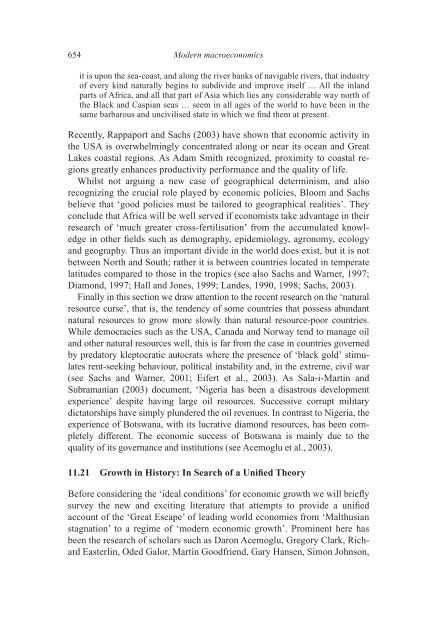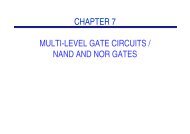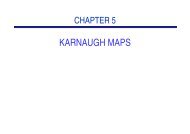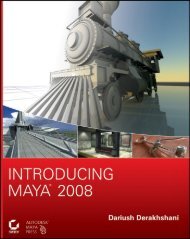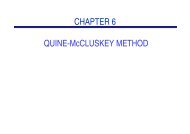- Page 2 and 3:
Modern Macroeconomics
- Page 4 and 5:
ModernMacroeconomicsIts Origins, De
- Page 6 and 7:
ContentsList of figuresList of tabl
- Page 8 and 9:
Contentsvii6.9 Technology shocks 31
- Page 10 and 11:
Contentsix10.19 Conclusion 565Inter
- Page 12 and 13:
Figuresxi3.18 The link between the
- Page 14 and 15:
Tables1.1 The Great Depression 121.
- Page 16 and 17:
Prefacexvmarked with an asterisk th
- Page 18 and 19:
AcknowledgementsThe authors would l
- Page 20 and 21:
1. Understanding modernmacroeconomi
- Page 22 and 23:
Understanding modern macroeconomics
- Page 24 and 25:
Understanding modern macroeconomics
- Page 26 and 27:
Understanding modern macroeconomics
- Page 28 and 29:
1.4 The Great DepressionUnderstandi
- Page 30 and 31:
Understanding modern macroeconomics
- Page 32 and 33:
Understanding modern macroeconomics
- Page 34 and 35:
Understanding modern macroeconomics
- Page 36 and 37:
Understanding modern macroeconomics
- Page 38 and 39:
Understanding modern macroeconomics
- Page 40 and 41:
Understanding modern macroeconomics
- Page 42 and 43:
Understanding modern macroeconomics
- Page 44 and 45:
Understanding modern macroeconomics
- Page 46 and 47:
Understanding modern macroeconomics
- Page 48 and 49:
Understanding modern macroeconomics
- Page 50 and 51:
Understanding modern macroeconomics
- Page 52 and 53:
Understanding modern macroeconomics
- Page 54 and 55:
Understanding modern macroeconomics
- Page 56 and 57:
Keynes v. the ‘old’ classical m
- Page 58 and 59:
Keynes v. the ‘old’ classical m
- Page 60:
Keynes v. the ‘old’ classical m
- Page 63 and 64:
44 Modern macroeconomicsHow much la
- Page 65 and 66:
46 Modern macroeconomicswill only o
- Page 67 and 68:
48 Modern macroeconomicsinterest, t
- Page 69 and 70:
50 Modern macroeconomicsAlthough Ri
- Page 71 and 72:
52 Modern macroeconomicsThe second
- Page 73 and 74:
54 Modern macroeconomics(1907) also
- Page 75 and 76:
56 Modern macroeconomicscivilisatio
- Page 77 and 78:
58 Modern macroeconomicsworrying ab
- Page 79 and 80:
60 Modern macroeconomicsdetermining
- Page 81 and 82:
62 Modern macroeconomicsand extende
- Page 83 and 84:
64 Modern macroeconomicsFigure 2.5T
- Page 85 and 86:
66 Modern macroeconomicsAccording t
- Page 87 and 88:
68 Modern macroeconomics2.9.2 Flexi
- Page 89 and 90:
70 Modern macroeconomicsboth Say’
- Page 91 and 92:
72 Modern macroeconomicslines in or
- Page 93 and 94:
74 Modern macroeconomicsLeijonhufvu
- Page 95 and 96:
76 Modern macroeconomicsproblems of
- Page 97 and 98:
78 Modern macroeconomicsTable 2.1 U
- Page 99 and 100:
80 Modern macroeconomicsarising fro
- Page 101 and 102:
82 Modern macroeconomicseconomic ac
- Page 103 and 104:
84 Modern macroeconomicseconomic sy
- Page 105 and 106:
86 Modern macroeconomicsTable 2.3 M
- Page 107 and 108:
88 Modern macroeconomicssuch as tho
- Page 109 and 110:
90 Modern macroeconomicsAlthough we
- Page 111 and 112:
92 Modern macroeconomicsof the Grea
- Page 113 and 114:
94 Modern macroeconomicsstuff, it w
- Page 115 and 116:
96 Modern macroeconomicsoriginal ve
- Page 117 and 118:
98 Modern macroeconomicsIt is hard
- Page 119 and 120:
100 Modern macroeconomicslag system
- Page 121 and 122:
102 Modern macroeconomicsinterventi
- Page 123 and 124:
104 Modern macroeconomicsequal to t
- Page 125 and 126:
106 Modern macroeconomicsthe smalle
- Page 127 and 128:
108 Modern macroeconomicsFigure 3.4
- Page 129 and 130:
110 Modern macroeconomicsthe autono
- Page 131 and 132:
112 Modern macroeconomicsliability
- Page 133 and 134:
114 Modern macroeconomicsWe now tur
- Page 135 and 136:
116 Modern macroeconomicsAgain supp
- Page 137 and 138:
118 Modern macroeconomicstive balan
- Page 139 and 140:
120 Modern macroeconomicscome to re
- Page 141 and 142:
122 Modern macroeconomicsrealize th
- Page 143 and 144:
124 Modern macroeconomicsdomestic i
- Page 145 and 146:
126 Modern macroeconomicshence the
- Page 147 and 148:
128 Modern macroeconomicsFigure 3.1
- Page 149 and 150:
130 Modern macroeconomicsWith adver
- Page 151 and 152:
132 Modern macroeconomicswould resu
- Page 153 and 154:
134 Modern macroeconomicsFigure 3.1
- Page 155 and 156:
136 Modern macroeconomicsFigure 3.1
- Page 157 and 158:
138 Modern macroeconomicsFigure 3.1
- Page 159 and 160:
140 Modern macroeconomicsX v uL =
- Page 161 and 162:
142 Modern macroeconomicstextbook i
- Page 163 and 164:
144 Modern macroeconomicswages was
- Page 165 and 166:
146 Modern macroeconomicsshort run.
- Page 167 and 168:
148 Modern macroeconomicsJAMES TOBI
- Page 169 and 170:
150 Modern macroeconomicsSkidelsky
- Page 171 and 172:
152 Modern macroeconomicsspend from
- Page 173 and 174:
154 Modern macroeconomicsequations.
- Page 175 and 176:
156 Modern macroeconomicsextreme. B
- Page 177 and 178:
158 Modern macroeconomicsEconomic P
- Page 179 and 180:
160 Modern macroeconomicsdone what
- Page 181 and 182:
162 Modern macroeconomicsanything i
- Page 183 and 184:
164 Modern macroeconomicsmoney stre
- Page 185 and 186:
166 Modern macroeconomicstion) as t
- Page 187 and 188:
168 Modern macroeconomicsKeynesian
- Page 189 and 190:
170 Modern macroeconomicsfrequently
- Page 191 and 192:
172 Modern macroeconomicsFigure 4.2
- Page 193 and 194:
174 Modern macroeconomicsThe Keynes
- Page 195 and 196:
176 Modern macroeconomicstrade-off
- Page 197 and 198:
178 Modern macroeconomicsFriedman
- Page 199 and 200:
180 Modern macroeconomicsuncertaint
- Page 201 and 202:
182 Modern macroeconomicsoccur. Whe
- Page 203 and 204:
184 Modern macroeconomicsnew short-
- Page 205 and 206:
186 Modern macroeconomicsaffect the
- Page 207 and 208:
188 Modern macroeconomicsmodels is
- Page 209 and 210:
190 Modern macroeconomicsthat opera
- Page 211 and 212:
192 Modern macroeconomicsthe world
- Page 213 and 214:
194 Modern macroeconomicsThe moneta
- Page 215 and 216:
196 Modern macroeconomicsing the im
- Page 217 and 218:
198 Modern macroeconomicsMILTON FRI
- Page 219 and 220:
200 Modern macroeconomicsKeynes’s
- Page 221 and 222:
202 Modern macroeconomicson Probabi
- Page 223 and 224:
204 Modern macroeconomicstime of mi
- Page 225 and 226:
206 Modern macroeconomicsRational e
- Page 227 and 228:
208 Modern macroeconomicscontradict
- Page 229 and 230:
210 Modern macroeconomicseconomics.
- Page 231 and 232:
212 Modern macroeconomicssaid about
- Page 233 and 234:
214 Modern macroeconomicsReserve Ba
- Page 235 and 236:
216 Modern macroeconomicsMacroecono
- Page 237 and 238:
218 Modern macroeconomicsempty they
- Page 239 and 240:
220 Modern macroeconomicsThe assump
- Page 241 and 242:
222 Modern macroeconomicstions hypo
- Page 243 and 244:
224 Modern macroeconomicsaggregate
- Page 245 and 246:
226 Modern macroeconomicsexpectatio
- Page 247 and 248:
228 Modern macroeconomicspublicly a
- Page 249 and 250:
230 Modern macroeconomicsver, 1992)
- Page 251 and 252:
232 Modern macroeconomicsformed exp
- Page 253 and 254:
234 Modern macroeconomicsprice chan
- Page 255 and 256:
236 Modern macroeconomics5.4 Equili
- Page 257 and 258:
238 Modern macroeconomicsfor an equ
- Page 259 and 260:
240 Modern macroeconomicsan increas
- Page 261 and 262:
242 Modern macroeconomicsThus, in t
- Page 263 and 264:
244 Modern macroeconomicsexpectatio
- Page 265 and 266:
246 Modern macroeconomicsFinally su
- Page 267 and 268:
248 Modern macroeconomicsdisinflati
- Page 269 and 270:
250 Modern macroeconomicscase is ba
- Page 271 and 272:
252 Modern macroeconomicsP˙ E( P˙
- Page 273 and 274:
254 Modern macroeconomicsSuppose th
- Page 275 and 276:
256 Modern macroeconomicsStackelber
- Page 277 and 278:
258 Modern macroeconomicsthe long r
- Page 279 and 280:
260 Modern macroeconomicshas been c
- Page 281 and 282:
262 Modern macroeconomicsenced by t
- Page 283 and 284:
264 Modern macroeconomicsthat the g
- Page 285 and 286:
266 Modern macroeconomicsmodels do
- Page 287 and 288:
268 Modern macroeconomicsnew classi
- Page 289 and 290:
270 Modern macroeconomicsFirst, it
- Page 291 and 292:
272 Modern macroeconomicsROBERT E.
- Page 293 and 294:
274 Modern macroeconomicsmaths, but
- Page 295 and 296:
276 Modern macroeconomicslengths to
- Page 297 and 298:
278 Modern macroeconomicsWe know fr
- Page 299 and 300:
280 Modern macroeconomicsare being
- Page 301 and 302:
282 Modern macroeconomicsI’m not
- Page 303 and 304:
284 Modern macroeconomicsYes, but i
- Page 305 and 306:
286 Modern macroeconomicsYes, that
- Page 307 and 308:
288 Modern macroeconomicsIn what ar
- Page 309 and 310:
290 Modern macroeconomicsthat gover
- Page 311 and 312:
292 Modern macroeconomicsPersonal I
- Page 313 and 314:
6. The real business cycle schoolIf
- Page 315 and 316:
296 Modern macroeconomicscriticizin
- Page 317 and 318:
298 Modern macroeconomicsThe idea t
- Page 319 and 320:
300 Modern macroeconomicsmodels sho
- Page 321 and 322:
302 Modern macroeconomicsFigure 6.1
- Page 323 and 324:
304 Modern macroeconomicscurve, as
- Page 325 and 326:
306 Modern macroeconomicsBusiness c
- Page 327 and 328:
308 Modern macroeconomicsthe second
- Page 329 and 330:
310 Modern macroeconomics(Robinson
- Page 331 and 332:
312 Modern macroeconomicsperiod, wo
- Page 333 and 334:
314 Modern macroeconomicsFigure 6.3
- Page 335 and 336:
316 Modern macroeconomicsFigure 6.5
- Page 337 and 338:
318 Modern macroeconomics(b)YY* = A
- Page 339 and 340:
320 Modern macroeconomicsFigure 6.8
- Page 341 and 342:
322 Modern macroeconomicsthat a com
- Page 343 and 344:
324 Modern macroeconomicsperspectiv
- Page 345 and 346:
326 Modern macroeconomicsrewritten
- Page 347 and 348:
328 Modern macroeconomicsReferring
- Page 349 and 350:
330 Modern macroeconomicsgiven mone
- Page 351 and 352:
332 Modern macroeconomicsis already
- Page 353 and 354:
334 Modern macroeconomicsEquation (
- Page 355 and 356:
336 Modern macroeconomicscal change
- Page 357 and 358:
338 Modern macroeconomicsaggregate
- Page 359 and 360:
340 Modern macroeconomicstheory is
- Page 361 and 362:
342 Modern macroeconomicsexample, c
- Page 363 and 364:
344 Modern macroeconomicsEDWARD C.
- Page 365 and 366:
346 Modern macroeconomicsFor over 2
- Page 367 and 368:
348 Modern macroeconomicsWere you s
- Page 369 and 370:
350 Modern macroeconomicsIn your 19
- Page 371 and 372:
352 Modern macroeconomicsrich class
- Page 373 and 374:
354 Modern macroeconomicstative emp
- Page 375 and 376:
356 Modern macroeconomicsWhat issue
- Page 377 and 378:
358 Modern macroeconomicsBlinder (1
- Page 379 and 380:
360 Modern macroeconomicsmacroecono
- Page 381 and 382:
362 Modern macroeconomicsThe reader
- Page 383 and 384:
364 Modern macroeconomics(1992b) ha
- Page 385 and 386:
366 Modern macroeconomicsto another
- Page 387 and 388:
368 Modern macroeconomicsW˙ E( P˙
- Page 389 and 390:
370 Modern macroeconomicsAccording
- Page 391 and 392:
372 Modern macroeconomicscertainly
- Page 393 and 394:
374 Modern macroeconomicsFigure 7.3
- Page 395 and 396:
376 Modern macroeconomicssive heter
- Page 397 and 398:
378 Modern macroeconomicsrequires a
- Page 399 and 400:
380 Modern macroeconomics1P=MC1+1/
- Page 401 and 402:
382 Modern macroeconomicsflexibilit
- Page 403 and 404:
384 Modern macroeconomicsImplicit c
- Page 405 and 406:
386 Modern macroeconomicsFigure 7.5
- Page 407 and 408:
388 Modern macroeconomicsKeynesian
- Page 409 and 410:
390 Modern macroeconomicsa firm pay
- Page 411 and 412:
392 Modern macroeconomicsMany econo
- Page 413 and 414:
394 Modern macroeconomicsfamous Mod
- Page 415 and 416:
396 Modern macroeconomics‘effect
- Page 417 and 418:
398 Modern macroeconomicsbut they h
- Page 419 and 420:
400 Modern macroeconomicsFigure 7.9
- Page 421 and 422:
402 Modern macroeconomics% 12111098
- Page 423 and 424:
404 Modern macroeconomicsUnemployme
- Page 425 and 426:
406 Modern macroeconomicsUnemployme
- Page 427 and 428:
408 Modern macroeconomicsIn the Phe
- Page 429 and 430:
410 Modern macroeconomicsmacroecono
- Page 431 and 432:
412 Modern macroeconomicsimpossible
- Page 433 and 434:
414 Modern macroeconomics3. an ‘i
- Page 435 and 436:
416 Modern macroeconomicsthe natura
- Page 437 and 438:
418 Modern macroeconomicsannounced
- Page 439 and 440:
420 Modern macroeconomicsHere r t*
- Page 441 and 442:
422 Modern macroeconomicsunderstood
- Page 443 and 444:
424 Modern macroeconomicsy=− ar+
- Page 445 and 446:
426 Modern macroeconomicsFor simpli
- Page 447 and 448:
428 Modern macroeconomics7.13 Criti
- Page 449 and 450:
430 Modern macroeconomicsA third li
- Page 451 and 452:
432 Modern macroeconomicsKeynesian
- Page 453 and 454:
434 Modern macroeconomicsEmpirics o
- Page 455 and 456:
436 Modern macroeconomicstion that
- Page 457 and 458:
438 Modern macroeconomicsups and do
- Page 459 and 460:
440 Modern macroeconomicsThe reason
- Page 461 and 462:
442 Modern macroeconomicsIn your re
- Page 463 and 464:
444 Modern macroeconomicsprocyclica
- Page 465 and 466:
446 Modern macroeconomicsthe rule b
- Page 467 and 468:
448 Modern macroeconomicsgive us ne
- Page 469 and 470:
450 Modern macroeconomicsyour asses
- Page 471 and 472:
452 Modern macroeconomicsthe ‘new
- Page 473 and 474:
454 Modern macroeconomicsTo throw o
- Page 475 and 476:
456 Modern macroeconomicsf d (N) =
- Page 477 and 478:
458 Modern macroeconomicstheories n
- Page 479 and 480:
460 Modern macroeconomicsleisure an
- Page 481 and 482:
462 Modern macroeconomicsto the inp
- Page 483 and 484:
464 Modern macroeconomics8.9 Classi
- Page 485 and 486:
466 Modern macroeconomicshomogeneou
- Page 487 and 488:
468 Modern macroeconomicsBy making
- Page 489 and 490:
470 Modern macroeconomicsIn the fir
- Page 491 and 492:
472 Modern macroeconomicsKreps’s
- Page 493 and 494:
9. The Austrian schoolRoger W. Garr
- Page 495 and 496:
476 Modern macroeconomicsLatestages
- Page 497 and 498:
478 Modern macroeconomicsHere, line
- Page 499 and 500:
480 Modern macroeconomicsConsumable
- Page 501 and 502:
482 Modern macroeconomicseconomy -
- Page 503 and 504:
484 Modern macroeconomicsreal outpu
- Page 505 and 506:
486 Modern macroeconomicsIn the Key
- Page 507 and 508:
488 Modern macroeconomicsThe derive
- Page 509 and 510:
490 Modern macroeconomicsInterestra
- Page 511 and 512:
492 Modern macroeconomicsrightward
- Page 513 and 514:
494 Modern macroeconomicsing. Capit
- Page 515 and 516:
496 Modern macroeconomicsThree dist
- Page 517 and 518:
498 Modern macroeconomicsinterest a
- Page 519 and 520:
500 Modern macroeconomicspeople’s
- Page 521 and 522:
502 Modern macroeconomicsCStages of
- Page 523 and 524:
504 Modern macroeconomicsties - no
- Page 525 and 526:
506 Modern macroeconomicsmuch as sh
- Page 527 and 528:
508 Modern macroeconomicsDuring the
- Page 529 and 530:
510 Modern macroeconomicsinvestment
- Page 531 and 532:
512 Modern macroeconomicsmoney (tha
- Page 533 and 534:
514 Modern macroeconomicsmay be see
- Page 535 and 536:
516 Modern macroeconomicsAlthough c
- Page 537 and 538:
518 Modern macroeconomics10.2 Polit
- Page 539 and 540:
520 Modern macroeconomicsEconomistA
- Page 541 and 542:
522 Modern macroeconomicsthe labour
- Page 543 and 544:
524 Modern macroeconomicsSource: Ad
- Page 545 and 546:
526 Modern macroeconomicsTable 10.1
- Page 547 and 548:
528 Modern macroeconomicswin electi
- Page 549 and 550:
530 Modern macroeconomicsthan is op
- Page 551 and 552:
532 Modern macroeconomics1947-72 an
- Page 553 and 554:
534 Modern macroeconomicsAccording
- Page 555 and 556:
536 Modern macroeconomicsReserve, 1
- Page 557 and 558:
538 Modern macroeconomicsIn the rat
- Page 559 and 560:
540 Modern macroeconomicsThe ‘ecl
- Page 561 and 562:
542 Modern macroeconomicsthere are
- Page 563 and 564:
544 Modern macroeconomicstude’ an
- Page 565 and 566:
546 Modern macroeconomicsof UK gove
- Page 567 and 568:
548 Modern macroeconomicspolicies a
- Page 569 and 570:
550 Modern macroeconomicsmakers hav
- Page 571 and 572:
552 Modern macroeconomicseconomic i
- Page 573 and 574:
554 Modern macroeconomicsbeen the s
- Page 575 and 576:
556 Modern macroeconomicsriod despi
- Page 577 and 578:
558 Modern macroeconomicseducation,
- Page 579 and 580:
560 Modern macroeconomicspoor make
- Page 581 and 582:
562 Modern macroeconomicsin order t
- Page 583 and 584:
564 Modern macroeconomicsethno-ling
- Page 585 and 586:
566 Modern macroeconomicssupporting
- Page 587 and 588:
568 Modern macroeconomicsCredit, an
- Page 589 and 590:
570 Modern macroeconomicsThe idea t
- Page 591 and 592:
572 Modern macroeconomicslarge, and
- Page 593 and 594:
574 Modern macroeconomicsgovernment
- Page 595 and 596:
576 Modern macroeconomicsGeneral Ma
- Page 597 and 598:
578 Modern macroeconomicspapers wit
- Page 599 and 600:
580 Modern macroeconomicsminants of
- Page 601 and 602:
582 Modern macroeconomicsstandards
- Page 603 and 604:
584 Modern macroeconomics11.3 In Pr
- Page 605 and 606:
586 Modern macroeconomicspessimism
- Page 607 and 608:
588 Modern macroeconomicscially in
- Page 609 and 610:
590 Modern macroeconomicst∗ = log
- Page 611 and 612:
592 Modern macroeconomicsregions an
- Page 613 and 614:
594 Modern macroeconomicsseveral ce
- Page 615 and 616:
596 Modern macroeconomicsrespect to
- Page 617 and 618:
598 Modern macroeconomicsneglected
- Page 619 and 620:
600 Modern macroeconomicsDividing t
- Page 621 and 622: 602 Modern macroeconomicscountries
- Page 623 and 624: 604 Modern macroeconomicsThe produc
- Page 625 and 626: 606 Modern macroeconomicsThe consum
- Page 627 and 628: 608 Modern macroeconomicsgraphs a w
- Page 629 and 630: 610 Modern macroeconomicsy = Y/LA(t
- Page 631 and 632: 612 Modern macroeconomics7. the Sol
- Page 633 and 634: 614 Modern macroeconomicspoints. In
- Page 635 and 636: 616 Modern macroeconomicsinvestment
- Page 637 and 638: 618 Modern macroeconomicsy= kα (11
- Page 639 and 640: 620 Modern macroeconomicsIn Lucas
- Page 641 and 642: 622 Modern macroeconomicsquality of
- Page 643 and 644: 624 Modern macroeconomics(α), coun
- Page 645 and 646: 626 Modern macroeconomicsaccumulati
- Page 647 and 648: 628 Modern macroeconomicsa neo-Schu
- Page 649 and 650: 630 Modern macroeconomicsaccess to.
- Page 651 and 652: 632 Modern macroeconomics6. therefo
- Page 653 and 654: 634 Modern macroeconomicsGDP = YtEn
- Page 655 and 656: 636 Modern macroeconomicswill not b
- Page 657 and 658: 638 Modern macroeconomicswhich econ
- Page 659 and 660: 640 Modern macroeconomicsTable 11.5
- Page 661 and 662: 642 Modern macroeconomicsthat absol
- Page 663 and 664: 644 Modern macroeconomics1993; Maur
- Page 665 and 666: 646 Modern macroeconomicsand expend
- Page 667 and 668: 648 Modern macroeconomicsbeneficial
- Page 669 and 670: 650 Modern macroeconomicsof change
- Page 671: 652 Modern macroeconomicseconomic p
- Page 675 and 676: 656 Modern macroeconomicsThe popula
- Page 677 and 678: 658 Modern macroeconomics8. providi
- Page 679 and 680: 660 Modern macroeconomicsROBERT M.
- Page 681 and 682: 662 Modern macroeconomicshim very w
- Page 683 and 684: 664 Modern macroeconomicseconomists
- Page 685 and 686: 666 Modern macroeconomicswith Edwar
- Page 687 and 688: 668 Modern macroeconomicsmystery st
- Page 689 and 690: 670 Modern macroeconomicscan ask: a
- Page 691 and 692: 672 Modern macroeconomicsa standard
- Page 693 and 694: 674 Modern macroeconomicsWe intervi
- Page 695 and 696: 676 Modern macroeconomicsoped by th
- Page 697 and 698: 678 Modern macroeconomicsEconomic G
- Page 699 and 700: 680 Modern macroeconomicstalked mat
- Page 701 and 702: 682 Modern macroeconomicsdisagree w
- Page 703 and 704: 684 Modern macroeconomicsWhen we ta
- Page 705 and 706: 686 Modern macroeconomicsWell, we w
- Page 707 and 708: 688 Modern macroeconomicsResearch i
- Page 709 and 710: 690 Modern macroeconomicsthe role o
- Page 711 and 712: 692 Modern macroeconomicspounds or
- Page 713 and 714: 694 Modern macroeconomicsother adva
- Page 715 and 716: 696 Modern macroeconomics12.2 Twent
- Page 717 and 718: 698 Modern macroeconomicstraces the
- Page 719 and 720: 700 Modern macroeconomicsunanticipa
- Page 721 and 722: Table 12.1 Some areas of agreement
- Page 723 and 724:
704 Modern macroeconomicsare driven
- Page 725 and 726:
706 Modern macroeconomicsnumber of
- Page 727 and 728:
BibliographyTitles marked with an a
- Page 729 and 730:
710 Modern macroeconomicsAkerlof, G
- Page 731 and 732:
712 Modern macroeconomicsMacroecono
- Page 733 and 734:
714 Modern macroeconomicsBackus, D.
- Page 735 and 736:
716 Modern macroeconomics*Barro, R.
- Page 737 and 738:
718 Modern macroeconomicsBernanke,
- Page 739 and 740:
720 Modern macroeconomicsBlanchard,
- Page 741 and 742:
722 Modern macroeconomicsBlinder, A
- Page 743 and 744:
724 Modern macroeconomicsCagan, P.
- Page 745 and 746:
726 Modern macroeconomicsA New Keyn
- Page 747 and 748:
728 Modern macroeconomicsand J.E. S
- Page 749 and 750:
730 Modern macroeconomicsDeane, P.
- Page 751 and 752:
732 Modern macroeconomics*Dimand, R
- Page 753 and 754:
734 Modern macroeconomicsEasterly,
- Page 755 and 756:
736 Modern macroeconomicsFama, E. (
- Page 757 and 758:
738 Modern macroeconomicsEconomic I
- Page 759 and 760:
740 Modern macroeconomicsgregate Ou
- Page 761 and 762:
742 Modern macroeconomics*Goodhart,
- Page 763 and 764:
744 Modern macroeconomicsHahn, F.H.
- Page 765 and 766:
746 Modern macroeconomicsHayek, F.A
- Page 767 and 768:
748 Modern macroeconomicsHowitt, P.
- Page 769 and 770:
750 Modern macroeconomics*Jorgenson
- Page 771 and 772:
752 Modern macroeconomicsKeynes, J.
- Page 773 and 774:
754 Modern macroeconomics*Krueger,
- Page 775 and 776:
756 Modern macroeconomicsLandman, T
- Page 777 and 778:
758 Modern macroeconomicsRate of Ch
- Page 779 and 780:
760 Modern macroeconomicsLundberg,
- Page 781 and 782:
762 Modern macroeconomicsin B. Snow
- Page 783 and 784:
764 Modern macroeconomics*Mishkin,
- Page 785 and 786:
766 Modern macroeconomicsMuth, J.F.
- Page 787 and 788:
768 Modern macroeconomicsO’Rourke
- Page 789 and 790:
770 Modern macroeconomicsPhelps, E.
- Page 791 and 792:
772 Modern macroeconomicsRobbins, L
- Page 793 and 794:
774 Modern macroeconomicsRomer, C.D
- Page 795 and 796:
776 Modern macroeconomicsSala-i-Mar
- Page 797 and 798:
778 Modern macroeconomicsSheffrin,
- Page 799 and 800:
780 Modern macroeconomicsEvolution
- Page 801 and 802:
782 Modern macroeconomicsStiglitz,
- Page 803 and 804:
784 Modern macroeconomicsTaylor, J.
- Page 805 and 806:
786 Modern macroeconomics*Tobin, J.
- Page 807 and 808:
788 Modern macroeconomicsWalsh, C.E
- Page 809 and 810:
790 Modern macroeconomics*Zarnowitz
- Page 811 and 812:
792 Modern macroeconomicsBenson Dur
- Page 813 and 814:
794 Modern macroeconomicsEkelund, R
- Page 815 and 816:
796 Modern macroeconomicsKalecki, M
- Page 817 and 818:
798 Modern macroeconomicsMorgenster
- Page 819 and 820:
800 Modern macroeconomicsSargent, T
- Page 821 and 822:
802 Modern macroeconomicsWeinstein,
- Page 823 and 824:
804 Modern macroeconomicseconomic h
- Page 825 and 826:
806 Modern macroeconomicsnew politi


